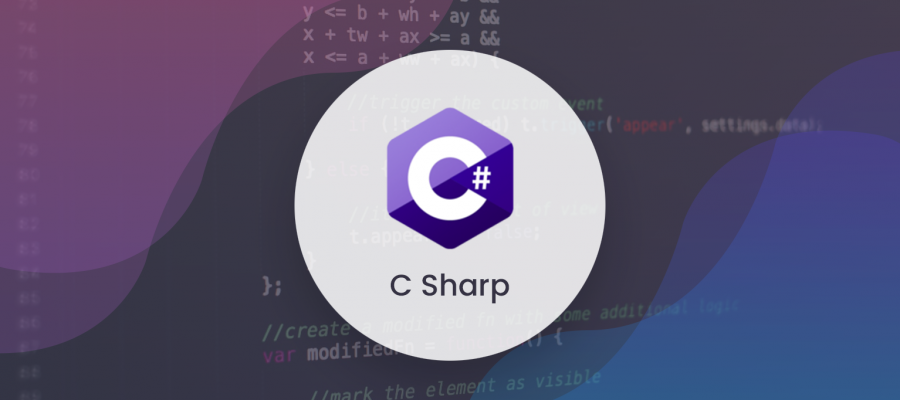C# is a general-purpose, multi-paradigm programming language encompassing strong typing, lexically scoped, imperative, declarative, functional, generic, object-oriented (class-based), and component-oriented programming disciplines. It was developed around 2000 by Microsoft as part of its .NET initiative, and later approved as an international standard by Ecma (ECMA-334) and ISO (ISO/IEC 23270:2018). Mono is the name of the free and open-source project to develop a compiler and runtime for the language. C# is one of the programming languages designed for the Common Language Infrastructure (CLI).
C# was designed by Anders Hejlsberg, and its development team is currently led by Mads Torgersen. The most recent version is 8.0, which was released in 2019 alongside Visual Studio 2019 version 16.3.
The Ecma standard lists these design goals for C#:
- The language is intended to be a simple, modern, general-purpose, object-oriented programming language.
- The language, and implementations thereof, should provide support for software engineering principles such as strong type checking, array bounds checking, detection of attempts to use uninitialized variables, and automatic garbage collection. Software robustness, durability, and programmer productivity are important.
- The language is intended for use in developing software components suitable for deployment in distributed environments.
- Portability is very important for source code and programmers, especially those already familiar with C and C++.
- Support for internationalization is very important.
- C# is intended to be suitable for writing applications for both hosted and embedded systems, ranging from the very large that use sophisticated operating systems, down to the very small having dedicated functions.
- Although C# applications are intended to be economical with regard to memory and processing power requirements, the language was not intended to compete directly on performance and size with C or assembly language
Some notable features of C# that distinguish it from C, C++, and Java where noted, are:
Portability:
By design, C# is the programming language that most directly reflects the underlying Common Language Infrastructure (CLI). Most of its intrinsic types correspond to value-types implemented by the CLI framework. However, the language specification does not state the code generation requirements of the compiler: that is, it does not state that a C# compiler must target a Common Language Runtime, or generate Common Intermediate Language (CIL), or generate any other specific format. Theoretically, a C# compiler could generate machine code like traditional compilers of C++ or Fortran.
Typing:
C# supports strongly typed implicit variable declarations with the keyword var, and implicitly typed arrays with the keyword new[] followed by a collection initializer.
C# supports a strict Boolean data type, bool. Statements that take conditions, such as while and if, require an expression of a type that implements the true operator, such as the Boolean type. While C++ also has a Boolean type, it can be freely converted to and from integers, and expressions such as if(a) require only that a is convertible to bool, allowing a to be an int, or a pointer. C# disallows this “integer meaning true or false” approach, on the grounds that forcing programmers to use expressions that return exactly bool can prevent certain types of programming mistakes such as if (a = b) (use of assignment = instead of equality ==).
Language Integrated Query (LINQ):
C# has the ability to utilize LINQ through the .NET Framework. A developer can query any IEnumerable<T> object, XML documents, an ADO.NET dataset, and a SQL database. Using LINQ in C# brings advantages like Intellisense support, strong filtering capabilities, type safety with compile error checking ability, and consistency for querying data over a variety of sources. There are several different language structures that can be utilized with C# with LINQ and they are query expressions, lambda expressions, anonymous types, implicitly typed variables, extension methods, and object initializers.
Functional programming:
Though primarily an imperative language, C# 2.0 offered limited support for functional programming through first-class functions and closures in the form of anonymous delegates. C# 3.0 expanded support for functional programming with the introduction of a lightweight syntax for lambda expressions, extension methods (an affordance for modules), and a list comprehension syntax in the form of a “query comprehension” language. C# 7.0 adds features typically found in functional languages like tuples and pattern matching.
The above is a brief about C#. Watch this space for more updates on the latest trends in Technology.
